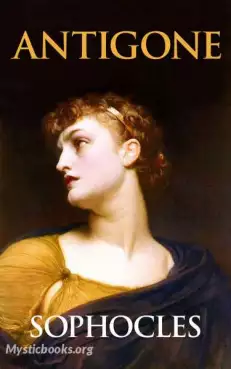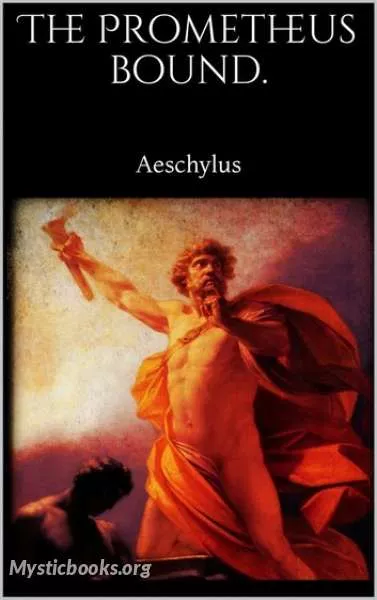
Prometheus Bound
by Aeschylus
'Prometheus Bound' Summary
Before the play begins, Kronos, the ruler of the pre-Olympian gods, had been overthrown by an insurgency lead by Zeus. In that revolt, Prometheus had sided with Zeus. As the new king, Zeus intended to destroy and replace humankind. Prometheus frustrated this plan, showing humans the use of fire, which Prometheus had stolen. Prometheus also taught humanity the arts. For these acts of defiance, Zeus intends to punish Prometheus by chaining him to a rock in the mountains of Scythia.
At the outset of the play Prometheus is seen accompanied by two faithful proxies of Zeus, namely Kratos and Bia, personifications of brute power and callous violence respectively, who will see to it that Zeus’s punishment is carried out. Also begrudgingly present is Hephaestus, the blacksmith of the gods, whose skills are needed to apply the hardware used to fasten Prometheus to the rock. Zeus, an off-stage character in this play, is portrayed as a tyrannical leader.
Only one of Zeus's two agents, Kratos, speaks in this scene, and he announces his orders harshly and insolently. Kratos states that the punishment meted out to Prometheus is due to the fact he stole fire and revealed the secret of how it is produced to humanity, adding that the punitive measure taken will compel Prometheus to take cognizance of the sovereignty of Zeus. For Prometheus, his punishment occurs because he dared to rescue mankind from being annihilated by Zeus. The penalty exacted is particularly galling since he himself had been instrumental in securing Zeus's victory in the Titanomachy.
Hephaestus performs his task, shackling Prometheus to the mountain, whereupon all three exit, leaving Prometheus alone on stage. Prometheus now speaks, and appeals to the powers of Nature, which are all around him. He calls on the wind, the mountains’ springs of water, the Earth and the Sun — to witness how he suffers unfairly. Somewhat elliptically he intuits what the future might portend in positive terms, and his outrage diminishes.
Prometheus becomes aware that something is approaching. He hears the beating of wings, and inhales the scent of the ocean. A chorus enters, made up of the daughters of Oceanus. From within their deep sea-caves, they had heard the sound of the hammering, and were drawn by curiosity and fear. They have arrived without stopping to put on their sandals. Before they come closer, they hover in the air just above Prometheus, who hints to them that he is keeping a secret that will eventually cause him to have power over Zeus. The chorus thinks that he is speaking out of anger, and may not actually be prophetic. Responding to their questions, Prometheus tells the story of his offense against Zeus admitting that it was deliberate. He complains that the punishment is too harsh. At last, Prometheus invites the chorus to stop hovering and come down to earth, to listen to more of what he has to say. They agree, and arrange themselves downstage in order to listen.
Prometheus’ story is interrupted by the entrance of Oceanus — the father of the chorus of nymphs. Oceanus arrives in a carriage drawn by a winged beast — a griffin. Oceanus is an older god, a Titan son of Earth, who has made peace with Zeus. He has heard of Prometheus’ troubles, and has come to offer some sympathy and advice. Prometheus is proud, and is hurt by this offer. Prometheus responds coldly, and wonders why Oceanus would leave his caves and streams to see such a miserable sight chained to a rock. Prometheus suggests that Oceanus should not intervene, out of concern for his own safety. Oceanus is annoyed by this, but wants to help, and offers to leave only when Prometheus tells him that if he attempts to intervene it will only increase the punishment Prometheus is suffering. Oceanus notes that his winged beast is eager to get home to his own stable, and he exits.
Prometheus is alone again with the chorus of Oceanus’ daughters, who did not speak while their father was visiting. Prometheus speaks to the chorus of Ocean nymphs. He asks pardon for his silence, which is because he was thinking about the ingratitude of the Gods. He describes the positive things he had done for humans. In the so-called Catalogue of the Arts (447-506), he reveals that he taught men all the civilizing arts, such as writing, medicine, mathematics, astronomy, metallurgy, architecture, and agriculture. He suggests that he will one day be unchained, but it will be due to the intervention of Necessity, which is something directed by Fate, not Zeus. When asked how that will happen, he keeps it secret. The Chorus sings an Ode that is a prayer that they will never cross Zeus.
Io, the daughter of Inachus, king of Argos, arrives. Io had become the object of Zeus’s affections and desires, which angered Zeus’s wife, Hera. Io’s father was advised to banish his daughter from his house, which he does. Io then wanders the Earth. Hera turned Io into a heifer and the herder Argus drove her from land to land. After Argus was killed by Hermes, a new torment was inflicted on Io — a plague of gad-flies. She has now arrived at the desolate place where Prometheus is chained. Prometheus is familiar with her story, and she recognizes him as the great friend to humans. The chorus doesn’t know Io’s past, and persuades Prometheus to let Io tell them. The chorus is shocked and saddened and asks Prometheus to tell of Io’s future wanderings. He hesitates because he knows it will be painful.
A brief dialogue reveals that Prometheus and Io are both victims of Zeus and that in the future Prometheus will eventually be freed by the descendants of Io. Prometheus asks Io to choose: Does she want to hear the rest of her own future, or the name of her descendant that will rescue him? The chorus interrupts — they want both: One answer for Io and one for themselves. Prometheus foresees that Io’s wanderings will end at the mouth of the Nile. There Zeus will restore her. She will give birth to a son, Epaphus, who will father fifty daughters, all of whom will murder their husbands, except for one, who will bear a line of kings, and another one who will rescue Prometheus from his torment. Prometheus’ future rescuer is not named, but is known to be Hercules. Io bounds away.
Prometheus proclaims that no matter how great Zeus may be, his reign will eventually come to an end. Zeus may do his worst but it won’t be forever. The chorus express caution, which he responds to with even more defiance. Prometheus’s words have reached Zeus, whose messenger, Hermes, appears to urge Prometheus to reveal his secret about the marriage that threatens Zeus. Hermes reveals Zeus’ own threats — the earthquake, the fall of the mountain that will bury Prometheus, the eagle that will attack Prometheus’s vital organs. Prometheus states again that he knows all that is to come and will endure it. Prometheus warns the chorus to stand aside. They don’t. The end comes: Earthquake, dust-storm, jagged lightning, whirlwind. Prometheus has the last line of the play: “O holy mother mine, O you firmament that revolves the common light of all, you see the wrongs I suffer!” Prometheus vanishes along with the chorus.
Book Details
Authors
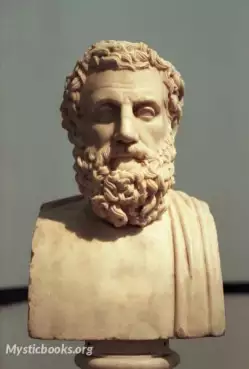
Aeschylus
Greece
Aeschylus was an ancient Greek author of Greek tragedy, and is often described as the father of tragedy. Academics' knowledge of the genre begins with his work, and understanding of earlier Greek trag...
Books by AeschylusDownload eBooks
Listen/Download Audiobook
- Select Speed
Related books
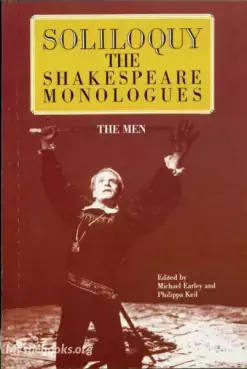
Shakespeare Monologues Collection vol. 13 by William Shakespeare
This is the thirteenth collection of monologues from Shakespeare's plays. Our readers have chosen their favourite monologues from Shakespeare's famous...

The Spanish Tragedy by Thomas Kyd
The Spanish Tragedy is often considered to be the first mature Elizabethan drama, a claim disputed with Christopher Marlowe's Tamburlaine, and was par...

Who's the Dupe by Hannah Cowley
is a captivating and humorous book that will leave young readers guessing until the very end. Written by Hannah Cowley, this comedic masterpiece is s...
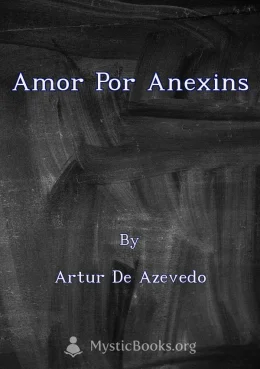
Amor por Anexins by Artur de Azevedo
Amor por Anexins é uma peça de teatro em um ato escrita por Artur Azevedo em 1872. É considerada sua primeira peça e teve grande sucesso, sendo encena...

The Lady From the Sea by Henrik Ibsen
The Lady from the Sea is a play written in 1888 by Norwegian playwright Henrik Ibsen inspired by the ballad Agnete og Havmanden. The drama is notable...

The Jew of Malta by Christopher Marlowe
The Jew of Malta (1589) is an original story of religious conflict, intrigue, and revenge, set against a backdrop of the struggle for supremacy betwee...
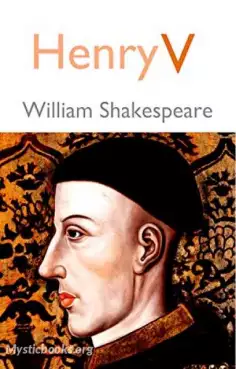
Henry V by William Shakespeare
Henry V is a history play by William Shakespeare, believed to have been written near 1599. It tells the story of King Henry V of England, focusing on...
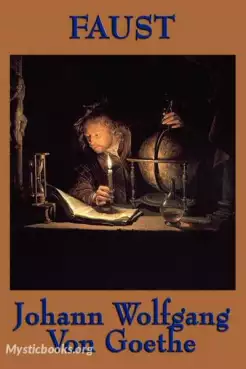
Faust I by Johann Wolfgang von Goethe
Faust is a tragic play in two parts by Johann Wolfgang von Goethe, usually known in English as Faust, Part One and Faust, Part Two. Although rarely st...
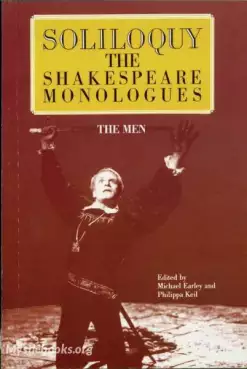
Shakespeare Monologues Collection vol. 16 by William Shakespeare
This is the sixteenth collection of monologues from Shakespeare's plays. Our readers have chosen their favourite monologues from Shakespeare's famous...
Reviews for Prometheus Bound
No reviews posted or approved, yet...
